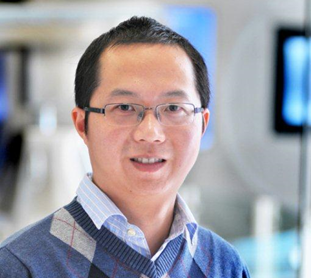Olivia Ginnard, D.O. - Instructor

Dr. Ginnard’s long-term professional goal entails continued experience as a physician-scientist in the field of endocrinology to better impact patient lives. Specifically, her research interests involve the development of a comprehensive understanding of how the alterations in vitamin D pathways lead to the pathologic disease states of obesity and diabetes in children.
Dr. Ginnard was born in Canada but primarily grew up in Texas. She graduated with a bachelor’s of science in psychology with a minor in biology from the University of Texas at Austin. She then went to medical school at the University of North Texas Health Science Center – Texas College of Osteopathic Medicine in Fort Worth. She completed her pediatric residency at the University of Texas Medical Branch in Galveston and became a board-certified pediatrician in 2019. Dr. Ginnard graduated from the Pediatric Endocrinology Fellowship at Texas Children’s Hospital – Baylor College of Medicine in 2022. It was at this time that she joined the TOP lab as a postdoctoral research fellow. Under the direction of Dr. Stephanie Sisley, she was able to pursue basic science to truly explore the role of vitamin D in the pathophysiological mechanisms in obesity and diabetes.
Dr. Ginnard is an instructor in the Department of Pediatrics in the Children’s Nutrition Research Center at Baylor College of Medicine/Texas Children’s Hospital. She joined the Xu Lab to translate her clinical and prior research training in obesity and vitamin D into a mouse model to allow her to address pertinent clinical questions related to the neural role of vitamin D in obesity and diabetes.
When not in the lab or clinic, you can find Dr. Ginnard running, cooking, spending time with family, or cheering on the Texas Longhorns!
Yongjie Yang, Ph.D. - Instructor
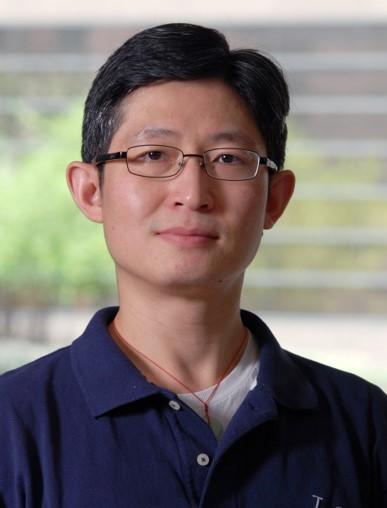
Dr. Yang received his B.S. in 1995 from Huazhong University of Science and Technology in Wuhan, China and his Ph.D. in 2006 from Shanghai Institute of Biochemistry and Cell Biology in Shanghai, China. Then he moved to Houston, Texas and joined Dr. Qiang Tong’s lab at the Children’s Nutrition Research Center for his postdoctoral training, working on the metabolic role of Sirtuins and aging. Since 2012, Dr. Yang has been working in Dr. Yong Xu’s lab with a primary focus on the central nervous system regulation of appetite, metabolism and body weight. His research specifically focuses on the neurons and neural circuits, especially the central melanocortin system, and the key intracellular molecules that regulate the energy homeostasis.
Julia Han, Ph.D. - Lab Manager
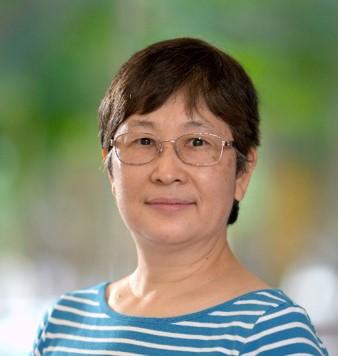
Dr. Han joined Dr. Yong Xu’s Lab in 2020 as a lab manager, where she oversees the management of a large mouse colony in addition to general lab management. She also investigates the function of neural networks by performing complex stereotaxic brain surgeries and histology studies. Previously, Dr. Han pursued her postdoctoral training at the Department of Pediatrics at the University of Louisville and continued her research in New Orleans as a research supervisor focusing on Type 2 diabetes research. Before she joined Dr. Xu’s lab, Dr. Han was a research associate in Dr. Li Zhang’s lab at Baylor College of Medicine. She received her Ph.D. in China in Medical Genetics.
Megan Burt-Research Technician

Megan graduated from University of Houston in Spring 2022 with a bachelor’s degree in psychology and biology. She began her journey in Dr. Leasure’s lab at the University of Houston as an undergraduate researcher. She studied prefrontal and hippocampal damage resulting from excessive alcohol consumption and how voluntary exercise may restore the brain’s health, which was discovered to be sex-dependent. After graduation, Megan spent time at Enthalpy Analytical as a laboratory technician. She focused on reporting and measuring particulate matter output from refineries throughout the nation to comply with EPA regulations. In 2023, Megan joined Dr. Xu’s lab as a Research Technician. In her free time, she enjoys Pilates, drawing, and video games.
Jingjing Cheng, Ph.D. – Postdoctoral Associate
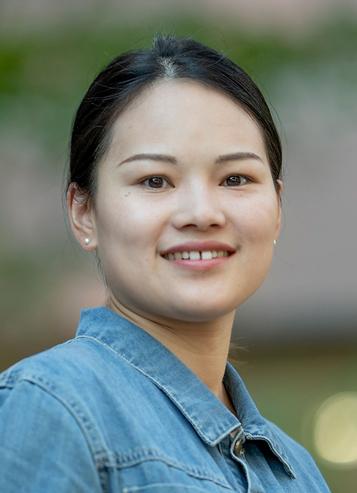
Dr. Jingjing Cheng earned her Ph.D. in Neuroscience from Zhejiang University, where she focused on the neural circuits regulating feeding behavior. Following her Ph.D., she attended to work at Zhejiang Provincial People's Hospital. In 2023, she began her postdoctoral training at Boston Children’s Hospital, studying the neural regulation of glucose metabolism. In 2024, Dr. Cheng moved to Houston to join Dr. Yong Xu's lab, where she continues to investigate the relationship between metabolic disturbances and psychiatric disorders, with a particular focus on the role of the hypothalamus in metabolic disorders. Outside of her research, Dr. Cheng enjoys listening to post-rock music, baking, spending time at museums, and exploring Houston with her family and friends.
Yue (Alvin) Deng, Ph.D. – Postdoctoral Associate

Dr. Deng was born in Chengdu, China and received his B.S. degree in Pharmacy from Sichuan University. He then went to the Pharmacology M.S. program at the University of Kansas, where he studied the degradation pathways of α-synuclein in Dr. Jackob Moskovitz lab. Later he was admitted to the Biomedical Science Ph.D. program at University of Iowa and joined Dr. Huxing Cui’s lab. Dr. Deng’s Ph.D. dissertation mainly focused on how certain brain nuclei (such as the paraventricular nucleus of hypothalamus) regulate metabolic homeostasis and stress-related behaviors in mice. This experience prompted him to join Dr. Yong Xu’s lab in 2023 so he could further research how metabolic homeostasis is regulated by the central nervous system using all the neuroscience and physiology techniques that he mastered from his Ph.D. training. In his leisure time, he enjoys spending time with his family and friends cooking, traveling, and playing some casual sports.
Xing Fang, Ph.D. – Postdoctoral Associate
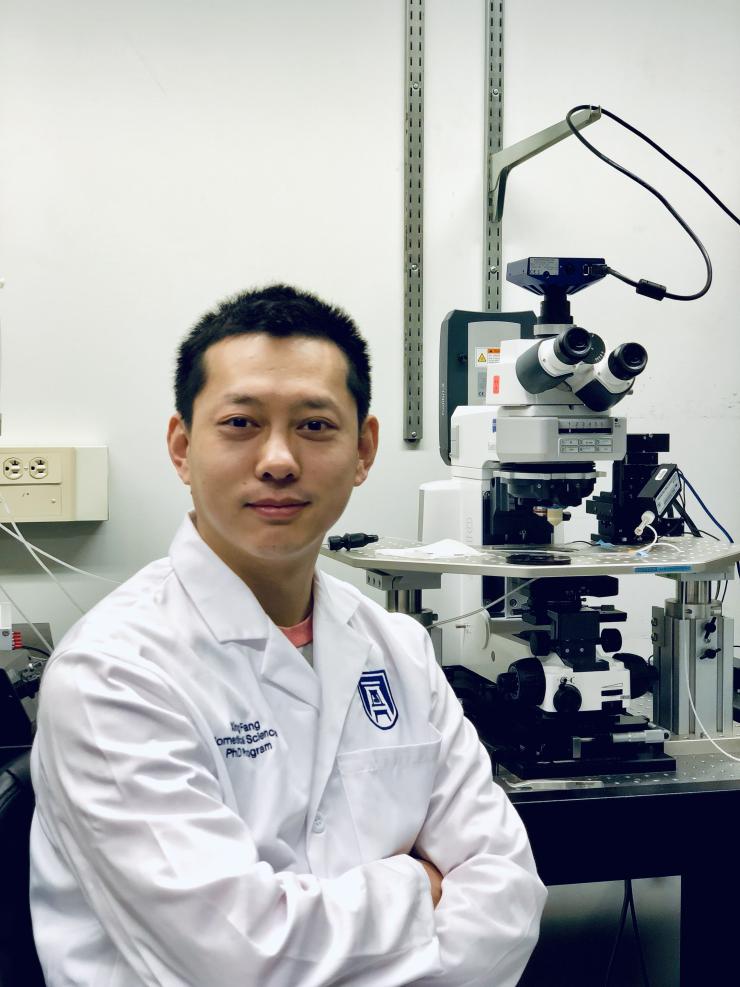
Dr. Fang’s scientific career started at the Shanghai Institute of Materia Medica, Chinese Academy of Science, where he received his Master’s degree in Neuropharmacology. Then he moved to United States and obtained a Ph.D. in Neuroscience from Medical College of Georgia. Dr. Fang’s initial postdoctoral experience started at the University of Southern California and Baylor College of Medicine before he joined Dr. Xu’s lab. His research involves a comprehensive understanding of the neural mechanisms underlying psychiatric disorders and how changes in neural circuits impact these diseases. His research uses electrophysiological, pharmacological, imaging, and behavioral approaches to meet these objectives. In Dr. Fang’s free time, he enjoys spending time with fruit trees and vegetables in his backyard.
Yongxiang Li, Ph.D. – Postdoctoral Associate
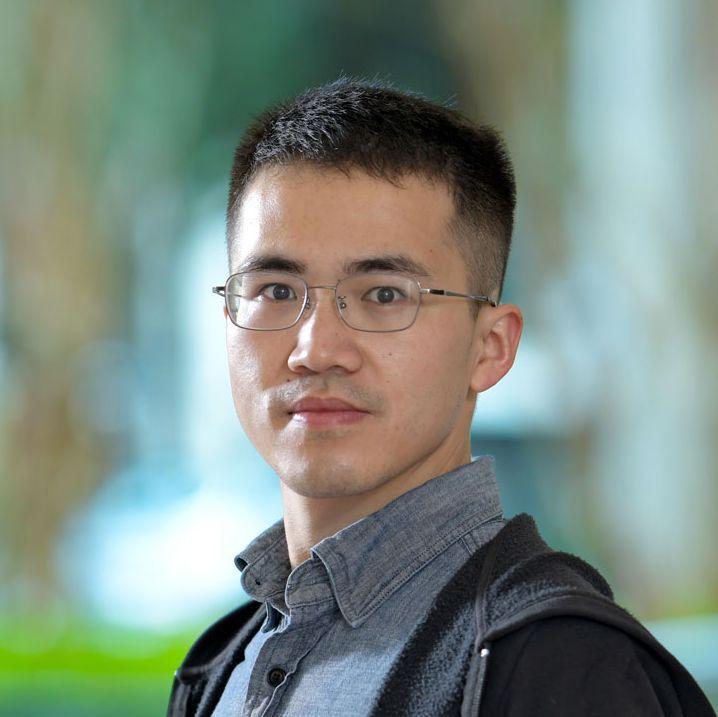
Dr. Li enrolled in graduate studies in Dr. Qingyan Jiang’s lab at South China Agricultural University and received his Ph.D. degree in 2021. During his Ph.D. studies, his research largely focused on TLR4 in different neurons and the effects on feeding behaviors and energy homeostasis in rodent models. He moved to the United States and joined Dr. Yong Xu’s laboratory at Baylor College of Medicine for postdoctoral training at the end of October of 2021. Dr. Li’ research focuses on molecules in the brain, like Grb10 and SK3 in the regulation of energy balance. He also explores the impact of different neural substrates on a variety of mouse behaviors using multiple methodologies. Dr. Li believes being a postdoctoral fellow in Dr. Yong Xu’s lab will provide him with the perfect training environment and skills that will give him the tools necessary to grow as a true scientist. Dr. Li received a Postdoctoral Fellowship Award from American Heart Association (AHA, 23POST1030526) for his project entitled "Trpc5 and Obesity" (January 2023). Meanwhile, he earned an American Diabetes Association Postdoctoral Fellowship for his project titled “Treating obesity caused by TRPC5 deficiency”. (1-24-PDF-56), recognizing his outstanding contributions and commitment to diabetes research (January 2024). This prestigious fellowship serves as a testament to Dr. Li’s dedication in advancing our understanding of diabetes and its management.
Hailan Liu, Ph.D. – Postdoctoral Associate

Dr. Liu started her Ph.D. program at Xiangya Medical College in 2017 and joined Dr. Yong Xu’s lab as a visiting scholar in 2018. She received her Ph.D. degree in 2021. Dr. Liu’s Ph.D. work focused on central regulation of energy homeostasis. She is committed to expanding the frontiers of knowledge in the field of neuroendocrinology and metabolism. Specifically, her focus lies in identifying novel neural circuits and molecules responsible for controlling food intake and maintaining energy balance. Dr. Liu has been selected as a recipient of a postdoctoral fellowship from AHA in 2023.
Qingzhuo Liu, Ph.D. – Postdoctoral Associate
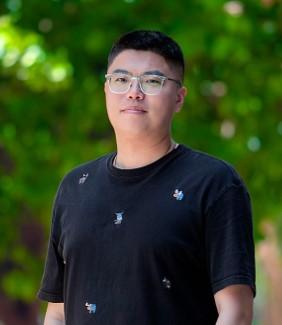
Dr. Liu received his Ph.D. degree in Neurobiology from Fudan University. During his Ph.D. studies, he mainly investigated the mechanism of synaptic transmission and plasticity in the central nervous system by using electrophysiology and pharmacology. Then, he moved to the United States in 2023 and joined Dr. Yong Xu’s laboratory for postdoctoral training. Dr. Liu works on the central mechanisms and neural circuits that regulate feeding behavior and glucose balance by using chemogenetics/optogenetics, fiber photometry, behavioral testing, and electrophysiology in mouse models. In his spare time, he enjoys hanging out with his friends and exploring Texas!
Xinming Liu - Visiting Scholar

Xinming was born in Dezhou, Shandong province, China. She received her bachelor’s degree in Clinical Medicine at Binzhou Medical University. She completed her Master’s degree and standardization training of residents in Internal Medicine at Jilin University. Then, she continues her Ph.D. program at Jilin University in the field of endocrinology and metabolic diseases. Her research project focuses on the lactate homeostasis in neurons and astrocytes during the development of brain insulin resistance. In December 2024, she joined Dr. Xu’s lab as a visiting learner to pursue this project. She believes that systematic and advanced scientific training here will help her to be a better doctor and researcher in the future.
Kristine McDermott, Ph.D. – Postdoctoral Associate

Dr. McDermott earned her master’s degree in Biomedical Sciences from Western University of Health Sciences in 2015, which is where she developed her love for neuroscience. She subsequently pursued her Ph.D. in Neuroscience, at Rutgers University in NJ in 2021. She made her way to Houston, Texas to work with Dr. Yong Xu at the Children’s Nutrition Research Center for her postdoctoral training. Dr. McDermott’s research focuses on understanding neurocircuits related to the development of obesity and identifying novel targets for therapeutic interventions for the treatment of obesity. As a result of this work, she was awarded an F32 from NIH-NIDDK (1F32DK134121) for her project studying serotonin neurons and meal regulation. When she is not in the lab, she enjoys spending time with her family, exploring the City of Houston, volunteering with the MS Society, and attending comedy shows, concerts, and professional sporting events.
Yuhan Shi, Ph.D. – Postdoctoral Associate

Dr. Shi was born in China and got his PhD from Institution of neuroscience, Chinese Academy of Science in 2019, his mentors were Dr. Leping Cheng and Dr. Chengyu Li. During his PhD, he participated in several subjects including direct reprogramming from astrocytes to neurons, molecular mechanisms of pain sensation, circuit mechanisms of working memory, and exploring the method to make a transgenic primate model. Dr. Shi started his postdoc career in Dr. Zilong Qiu’s lab at the Institution of neuroscience, Chinese Academy of Science to study the molecular and circuitry mechanisms of autism. At the beginning of 2023, he moved to the US to continue his postdoctoral studies in Dr. MingShan Xue’s lab at Baylor college of medicine to study the circuitry mechanisms of developmental disorders. At the end of 2023, he joined Dr. Xu’s lab. Dr. Shi studies mainly focus on the cellular and circuitry mechanisms of the neuronal regulation of neurons in the spinal cord and dorsal root ganglion on metabolism. At the same time, he is also interested in the correlation between the nicotine consumption and metabolic changes. As we know, smoking can decrease human and animal body weight, and quitting smoking can increase body weight gain. What is the neuronal mechanism? It’s remained unanswered. Outside of work, he always tries to keep a good balance between work and life, he usually spends a lot of time with his family. He has two children; they learn and grow up together.
Meixin Sun- M.D. Visiting Scholar

Dr. Sun obtained her M.D. degree from Jilin University. After completing her M.D. studies, she decided to pursue a Ph.D. directly at the First Houspital of Jilin University. During her Ph.D. studies, she developed a particular interest in how obesity contributes to cognitive decline. In December 2024, she joined Dr. Xu’s lab as a visiting student, where she is continuing her research on the relationship between metabolic disorders and cognitive function. In addition, she will explore other areas related to the brain and metabolism. She is thrilled to be part of Dr. Xu's lab and looks forward to expanding her knowledge and learning new experimental techniques in neuroscience. In spare time, she is passionate about music, drawing and traveling.
Lucas Tu, Ph.D. – Postdoctoral Associate
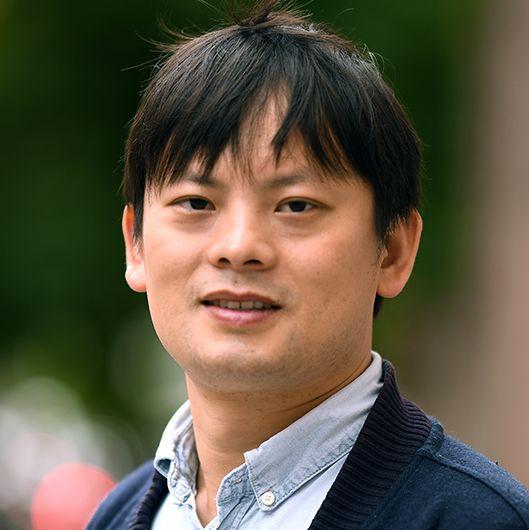
Dr. Tu received his Ph.D. degree from the Chinese University of Hong Kong, and then moved to the United States in late 2019. His previous research in Hong Kong primarily focused on nausea and vomiting induced by motion and chemotherapy from the perspective of neuropharmacology. Dr. Tu works on central mechanisms of glucose homeostasis, as well as feeding behavior in Dr. Yong Xu’s lab. He is thrilled to learn and master state-of-the-art techniques in neuroscience and is extremely fascinated by emerging novel neuroscience research. During his spare time, he likes hiking, traveling, pets, photography, reading, writing, etc. Don’t be surprised if one day, Dr. Tu writes a book about traveling and other life experiences with the beautiful photos he has captured!
Fuhui Wang, Ph.D. – Postdoctoral Associate
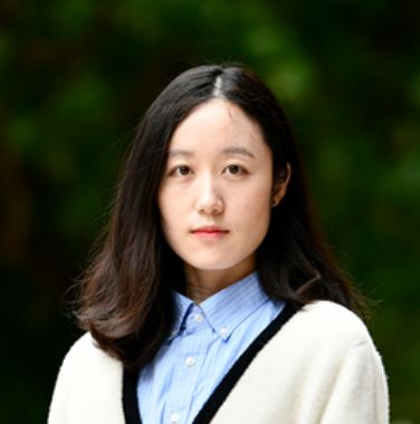
Fuhui Wang earned her doctoral degree from the Guangzhou Institutes of Biomedicine and Health at the Chinese Academy of Sciences, where she focused on studying the mechanisms of tumor progression. She then completed a two-year postdoctoral fellowship at the Seventh Affiliated Hospital of Sun Yat-sen University, where her research investigated the role of immune cells in gastrointestinal tumors, revealing the critical functions of macrophages and T cells in the onset and progression of diseases.
Mengjie (Emma) Wang, M.D., Ph.D. – Postdoctoral Associate

Dr. Wang grew up in China, where she got her M.D. and M.S. in Pediatrics from Guangxi Medical University. Her research journey started when she joined Dr. Zengnan Mo’s group to establish and follow up with a Fangchenggang Area Male Health Examination Survey (FAMHES) cohort. When she completed her clinical internship in the Department of Pediatrics with Dr. Dan Lan, she discovered her research interest in reproductive endocrinology. To further her studies, Dr. Wang went abroad to pursue her Ph.D. in Molecular Medicine under the guidance of Dr. Jennifer Hill at the University of Toledo, Ohio. In her lab, she gained knowledge of how the hypothalamic-pituitary-gonadal axis controls reproduction, the interaction between energy homeostasis and reproduction, and maternal and child health. The more Dr. Wang learned, the more she realized how much she does not know.
In June 2021, Dr. Wang joined Dr. Yong Xu’s lab as a postdoc. The great mentorship, lab environment and modern chemogenetics/optogenetics, electrophysiology and neurotracing approaches would help her further study physiological relevance of specific neural networks in the regulation of metabolic and reproductive functions.
Dr. Wang received a T32 award (#5T32HD098068-03) in 2023, and a F32 award from NIH-NICHD (1F32HD112123-01A) in 2024 for her project "Nutrition Regulates Sexual Function". These awards will support her research and certainly help advance her career.
Being a postdoc is challenging and exciting and sometimes stressful. Dr. Wang is learning to keep a healthy work-life balance. She enjoys spending her spare time with her family and friends, exercising, exploring Texas, cooking, and reading books. The beautiful things in her life always reminds her to be happy with what you have, while working hard for what you want.
Meng Yu, Ph.D. – Postdoctoral Associate
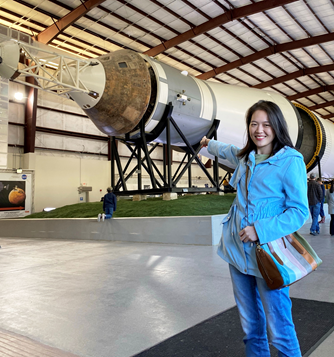
Dr. Yu received her Ph.D. degree from Fudan University (China) in 2018 and moved to the United States in September 2018. During her Ph.D., she focused on Huntington’s disease, a neurodegenerative disease. She validated and characterized promising genetic targets for therapeutic treatment of Huntington's disease in a broad spectrum of mammalian cellular systems and mouse models, and successfully proved a potential druggable target for Huntington’s disease treatment. After joining Dr. Yong Xu’s lab, Dr. Yu focused on the central regulation of energy homeostasis. One of her ongoing objectives is to investigate a small-conductance calcium-activated potassium channel (SK3) in proopiomelanocortin (POMC) neurons and the regulation food intake and energy homeostasis. Additionally, another project Dr. Yu is working on is to determine the central mechanism by which estrogen regulates lactation physiology. Finally, she is also working to determine the role of retinoid X receptor gamma (RXRG), a transcription factor, in the development and functions of the hypothalamus on the regulation of energy homeostasis and glucose balance.
Jinjing Jian, Ph.D. – Postdoctoral Associate

Dr. Jian received her Ph.D. from Fudan University in 2023, where her research focused on speciation mechanisms and population genetics in diverse plant populations using bioinformatic approaches. After completing her Ph.D., she moved to Houston to begin her postdoctoral training at Baylor, where she focused on constructing multi-omics atlases and exploring spatial transcriptomics in the human eye and mouse sensory ganglion. In 2025, she joined Dr. Xu’s lab to further explore neuroscience through bioinformatic approaches. Outside the lab, she enjoys baking, painting, and traveling with friends.
Jiamin Qiu, Ph.D. – Postdoctoral Associate

Dr. Qiu earned her Ph.D. from Purdue University in 2023, where she investigated the role of mitochondrial metabolism in peripheral tissues, including brown adipose tissue, white adipose tissue, and skeletal muscle. Through her research, she developed a deep appreciation for the intricate metabolic connections between organs. While peripheral metabolic tissues play a crucial role in maintaining whole-body energy homeostasis, she recognized the central nervous system's essential function in regulating energy balance. To expand her expertise in neurobiology, Dr. Qiu joined Stanford University in 2024, where she worked with iPSC-derived neurons. After realizing the limitations of in vitro models in studying systemic metabolism, she joined Dr. Xu’s lab in 2025. Her research then focuses on the crosstalk between the central nervous system and peripheral tissues, exploring how this interaction maintains whole-body energy homeostasis. Outside the lab, Dr. Qiu enjoys traveling, hiking, visiting zoos and museums, exploring diverse cuisines, and watching funny animal videos!
Xi Wu, Ph.D. – Postdoctoral Associate

Dr. Xi Wu obtained his Ph.D. in Neuroscience from Peking University, where he concentrated on neuropathic pain pathways and the mechanisms of insulin secretion in pancreatic β cells, utilizing electrophysiological and molecular biological techniques. In 2025, Dr. Wu relocated to Houston to begin his postdoctoral research in Dr. Yong Xu's laboratory, where he studied the neurocircuits that regulate behavior and energy metabolism.
Tong Zhou -Visiting Scholar
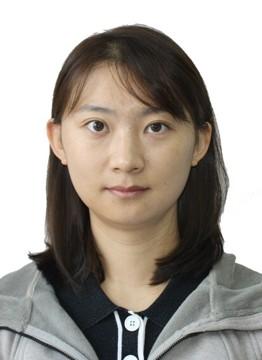
Dr. Tong was born in Changchun, Jilin Province, China. She received her Ph.D. and M.D. degrees in Endocrinology and metabolism at Jilin University in 2019. After 3-year clinical work in the department of endocrinology and metabolism, she began postdoctoral experience in Biology at Jilin University and completed the work in 2024. During her Ph.D. and postdoc studies, her research primarily focused on the relationship between immune system and metabolism. In March 2025, she joined Dr. Xu’s lab as a visiting scholar, where she is continuing her research on the mechanism of central nervous system controlling the immune system and metabolism. She looks forward to expending her knowledge in neuroscience. In spare time, she spends a lot of time with family and enjoys movies and travelling.
Xu Xu-Fellow Physician PGY4

Dr. Xu was born in Chengdu, Sichuan, and completed her medical school education at Peking Union Medical College. Following a year of residency, she relocated to Tennessee for a family reunion. After being a stay-at-home mom for several years, she rekindled her career as a pediatric resident at Richmond University Medical Center. Subsequently, Dr. Xu made the move to Houston to pursue fellowship training in pediatric endocrinology at Texas Children's Hospital. Outside of the medical field, she enjoys reading, writing, cooking, baking, walking in nature and spending time with her family and friends.
Yutian Liu - Visiting Scholar
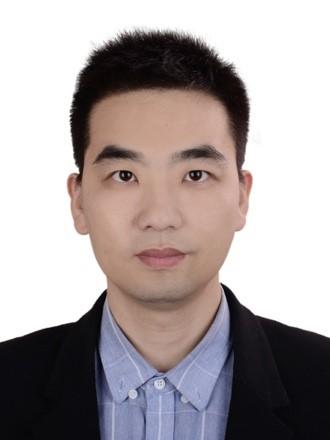
Dr. Liu is originally from Henan Province, China. In 2016, he received both his Ph.D. and M.D. degrees in Surgery from Tongji Medical College of Huazhong University of Science and Technology. During his Ph.D. studies, his research primarily focused on elucidating the mechanisms underlying peripheral nerve injury and regeneration. Since beginning his clinical career in 2016, his research has concentrated on interdisciplinary medical-engineering studies, particularly for limb wound repair and diabetic peripheral neuropathy, with a strong emphasis on exploring the mechanisms of diabetic peripheral neuropathy.
In 2024, Dr. Liu moved to the United States and joined Professor Xu’s laboratory as a research scholar. Here, he is committed to in-depth research on the central nervous system alterations associated with diabetic peripheral neuropathy. He is confident that his tenure in Professor Xu’s lab will not only enhance his understanding of diabetic peripheral neuropathy but also significantly aid in advancing treatment strategies for patients suffering from this condition.
In his spare time, he enjoys socializing with friends and discovering new places around Texas.
Yuxue Yang -Visiting Scholar

Dr. Yang received her M.D. degree from Chongqing Medical University in China. After completing her M.D. studies, she pursued a Master's degree in research at Chongqing Cardiovascular Research Institute and earned her degree from Southwest Jiaotong University. During this time, she developed a strong interest in research and began focusing on cardiovascular and kidney diseases. Dr. Yang is pursuing a PhD in Internal Medicine at Yangzhou University, where she continues to specialize in cardiovascular and kidney diseases. In September of 2023, she joined Dr. Yong Xu's lab at Baylor College of Medicine to broaden her knowledge in the field of neurology. She believes that working here will further her understanding of research and expand her perspective in this exciting field.








